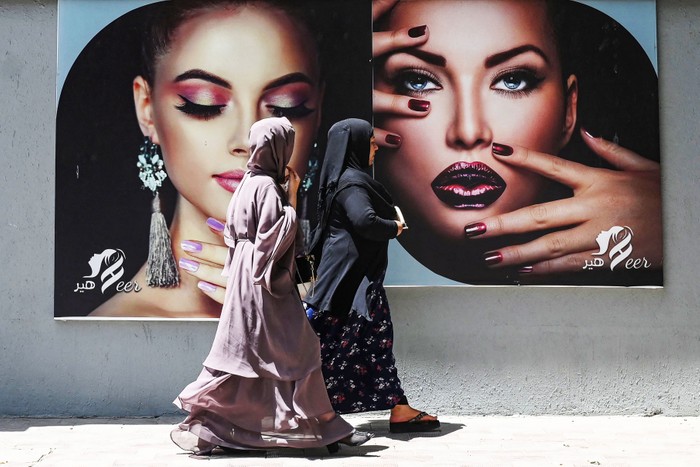Confirmation of the fall of Kandahar came half a day after the Taliban took control of Afghanistan’s third largest city, Herat.
– These are two of Afghanistan’s most important cities and a major victory for the Taliban, researcher at the Brio Peace Research Institute, Christian Berg Harpviken, tells NRK.
On Friday, the Taliban also captured five other provincial capitals, including Lashkar Gah, the capital of Helmand province.
Meanwhile, fierce fighting is raging around Mazar-i-Sharif, the fourth largest city, and Qandex, the sixth largest city, fell last weekend.
– Now it’s very exciting. I could have said that a week ago, too, but a week ago the Taliban didn’t turn their attention to the big cities, says Harpviken.
In August, the Taliban took control of 17 of the 34 Afghan provincial capitals during August. There are cities across the country that the Taliban have now taken over.
The issue continues down the map.
He controls most of the country
the site jorn long warl updates the map of who controls the country areas daily.
As of August 12, the Taliban controlled 233 districts, while the government controlled only 64 districts.
Back in just over four years – until January 2017 – the situation was the opposite. Then the government took control of 272 districts, compared to 51 for the Taliban.
Not everyone agrees with these numbers, but they still show a picture of the Taliban’s progress.
Taliban-controlled areas of Afghanistan in April and August 2021
The Long War Journal / Faksimile
Refugees flock to Kabul
The result of the Taliban’s advance was, among other things, the influx of refugees into the capital, Kabul.
– What you notice most in Kabul is that there are more people than usual. Sidewalks, gardens, everything is full, says Waterdale.
It is in the capital and it is estimated that more than 100,000 refugees have arrived in Kabul in a short time.
Kabul had a population of 5 million, but due to internal flight over the past few months, the number may now approach 7 million in a somewhat limited area.
– The Taliban took Ghazni city yesterday, so there are refugees all the time. He adds that Kapisa province, north of Kabul, is also under pressure, so there is an influx of people every day.

The director of the Afghan Committee, Terry Waterdale, with driver Ata Gul in Ghazni before the Taliban took control of the city.
Photo: a friend of mine / Afghanistan
hoping for a solution
We’ve now reached a point where it’s hard for government to convince anyone that they can keep important cities and important traffic streets, says Harpviken.
Terry Waterdale has worked with Afghanistan since 1998 and has lived there for the past eight years. Few, if any, Norwegians know the country as well as they do.
– In the end, Kabul is also likely to fall, is his assessment of the situation.
He says it’s hard to say when it will happen, especially in light of this The United States is now sending 3,000 soldiers to assist with evacuation.
Waterdale says there is a fear of matches, but we hope both sides are sane enough that they find some kind of negotiated solution.
There will be a bloodbath in Kabul if battles take place within the city, says Waterdale.

A Taliban soldier in Herat on Friday, a day after they captured Afghanistan’s third largest city.
Photo: AFP
Taliban workers take control
The Afghanistan Committee works mainly in rural areas.
– These are areas controlled by the Taliban for several weeks. There we continue to work. We build irrigation canals and run schools, says Waterdale.
He says that in Badakhshan province, one of the commission’s cars was stolen on the first morning after the Taliban took control.
– We then contacted Taliban authorities and then made sure the car was returned within four hours, says Waterdale.
The Taliban armed police are now patrolling the streets to prevent criminal elements from taking advantage of the situation.
– They are clearly afraid because they do not know what will happen. But for now, all of our people are safe, he says.

An armed Taliban soldier rides on a motorcycle in Herat on Friday.
Photo: STR/AFP
Show unmarried young girls
The Afghan Committee has 700 employees and a budget of NOK 70 million per year.
40% of the Commission’s staff are women. Most women from all organizations do not “only” work on women’s projects.
Waterdale says the situation is now uncertain for female employees. – He says that women are the most worried, especially unmarried girls.
They are now uncertain about the future and full of questions:
– Will they be able to continue working, will they be able to continue to go to school, will they be married, and what is their future in this country?
He now hopes that unmarried girls will receive protection.
We hope that the Norwegian authorities will ask the Taliban to ensure that women, young people and people of minority background receive additional protection, says Terje Waterdahl.

“Organizer. Social media geek. General communicator. Bacon scholar. Proud pop culture trailblazer.”


